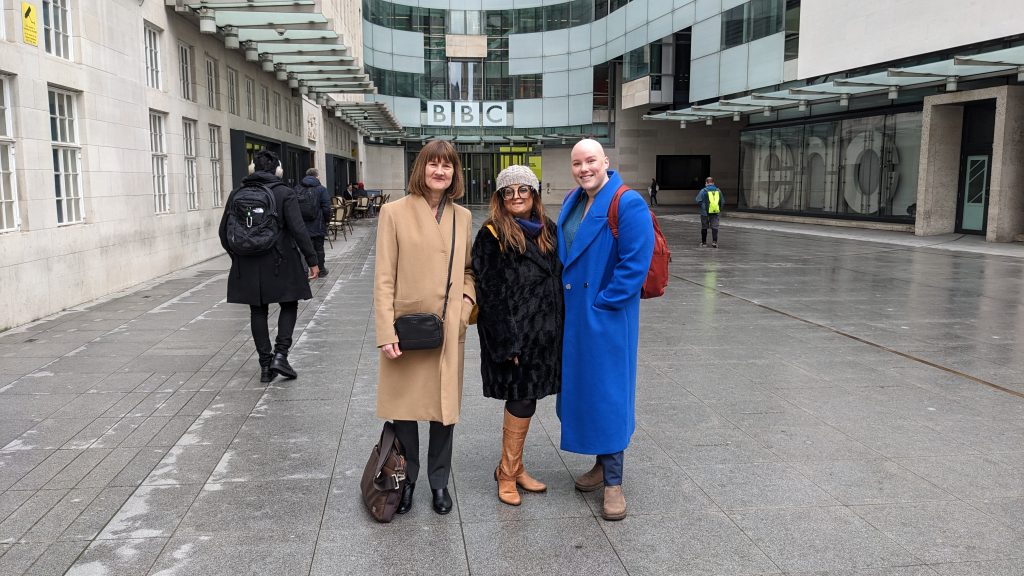Ambassador, Tulsi, and campaigner, Laura, joined chief executive, Heather and head of communications and campaigns, Gill, to present to the group, explaining what visible difference is and why representation matters.
The session was arranged by the BBC in response to us challenging their processes, which had allowed an episode of Only Connect to air on BBC 2, with a segment that described scars as ‘marks of shame’. Thanks to you, our supporters, getting behind our campaign on social media we secured an apology and this meeting.

Heather, Tulsi and Laura at the BBC
Our ambassador, Tulsi, says: “It has been refreshing to receive apologies from both the production company and the BBC. I know from the conversations I’ve had that harm wasn’t intended, but incidents like this do have a negative impact. They all play a part in telling us there’s something wrong or problematic with us, when the reality is its other people’s reactions to visible difference that need to change, not me.
“Speaking with a room full of people who influence what we see and hear on our screens was great. It was good to have open conversations, answer questions and encourage the Commissioners to think about how they can play their part in us all seeing better representation. There’s no reason why someone with a visible difference shouldn’t see themselves – whether that’s in a lead role, or someone who is just having a drink in the background of the Queen Vic in Eastenders.”
We think training about visible difference and representation needs to be built into standard BBC training plans.
We told the Commissioners about our I Am Not Your Villain campaign, as well as sharing with them more about what visible difference is, and our research into the lives of people with a visible difference in the UK today.
Ahead of the meeting, working with our campaigners and ambassadors, we wrote a series of recommendations and suggestions for the BBC that laid out a series of asks, detailing how we think they can better monitor and increase positive representation of visible difference both on the screen and behind the camera amongst their staff.
Campaigner, Laura, says: “As brilliant as it was to be in the room and meeting the Commissioners, we don’t ever want to do it again. We don’t want another incident to happen that means we have to go and explain the problem and why it needs to change. That’s why we’ve said we think training about visible difference and representation needs to be built into standard BBC training plans. We also think they should be monitoring on screen representation and keeping track on whether they are improving. I did also flag that Changing Faces ambassadors and campaigners like me and Tulsi, would make brilliant presenters!”
We’re now going to be working with the BBC to determine the next best steps, including how we work together to ensure BBC staff and the independent production companies they work with and commission shows and content from get the training they need.
We’ll keep you updated with how we get on, but hopefully you’ll see the proof on screen.